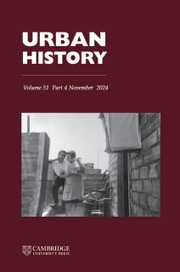Article contents
Litigation and locality: the Cambridge university courts, 1560–1640
Published online by Cambridge University Press: 24 September 2004
Abstract
The importance of legal institutions as mediators of social relations in early modern towns has long been recognized. However, opinion differs over the extent to which early modern courts generated social conflict or resolved it through promoting consensus. This article brings to light a neglected jurisdiction and argues that while the university courts inevitably generated conflict when pursuing their regulative agenda, they nonetheless offered Cambridge inhabitants a considerable resource which was used extensively in both the speedy resolution and the vexatious prolongation of a wide range of disputes which tended to cut across rather than deepen town–gown hostilities.
- Type
- Research Article
- Information
- Copyright
- © 2004 Cambridge University Press
- 3
- Cited by


